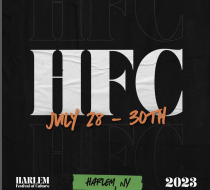The Harlem Festival of Culture Favorite
The Harlem Festival of Culture not only pays homage to the past but also envisions a brighter future. It serves as a platform to showcase the rich diversity and dynamism of Harlem's artistic community, while also acting as a catalyst for social change and community empowerment. The festival boasts a lineup of artists from various genres and backgrounds, including jazz, soul, hip-hop, gospel, blues, rock, Latin, and Afrobeat. Confirmed performers include Erykah Badu, Common, The Roots, Lauryn Hill, Kamasi Washington, and Angélique Kidjo, alongside emerging talents and local organizations making a difference in Harlem and beyond.
In addition to its musical offerings, the Harlem Festival of Culture presents educational and cultural opportunities for attendees and the public alike. The festival collaborates with numerous institutions and venues in Harlem, such as the Apollo Theater, the Schomburg Center for Research in Black Culture, the Studio Museum in Harlem, and the National Black Theatre. Workshops, panels, screenings, and exhibitions will delve into topics like Black history, culture, politics, spirituality, identity, and creativity. Moreover, the festival will host speakers and activists who will share their insights and experiences on leveraging art as a tool for social justice and transformation.
The Harlem Festival of Culture extends beyond the celebration of music and art, as it also commemorates Harlem and its residents. It honors the legacy of the 1969 Harlem Cultural Festival, a landmark event that gathered hundreds of thousands to witness influential artists of the time. Simultaneously, it served as a potent expression of Black pride and solidarity during a period marked by racial unrest and violence. Despite being largely overlooked by mainstream media and culture, Questlove's documentary, Summer of Soul (…Or, When the Revolution Could Not Be Televised), revived the festival's memory in 2021, earning numerous awards and accolades for its archival footage and interviews with performers and attendees.
By perpetuating the spirit and message of the 1969 Harlem Cultural Festival, the Harlem Festival of Culture celebrates the accomplishments and contributions of Black artists and activists throughout history. Furthermore, it aims to inspire a new generation of innovative and courageous leaders who will employ their talents and voices to positively impact their communities and the world.








